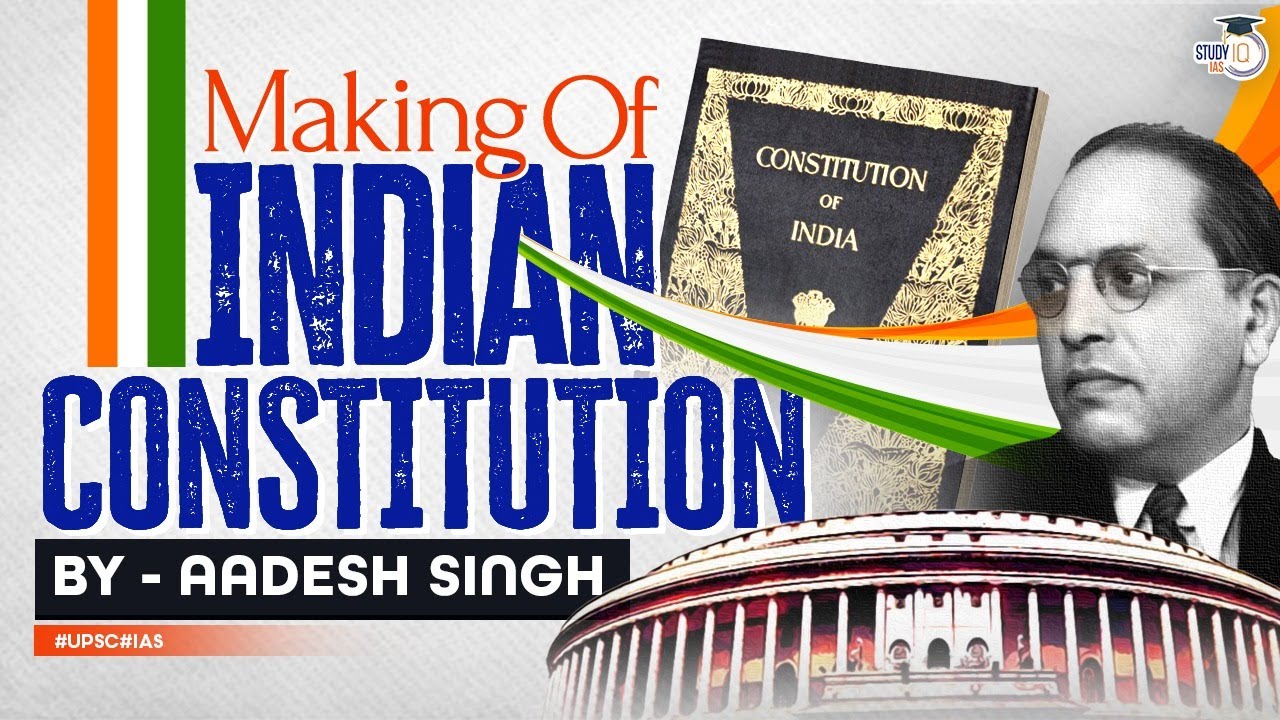Dr.Babasaheb Ambedkar Original speech at Parliament 1949, ( Redirected by Shyam Benegal)
Summary
TLDRThis speech reflects on the historical process of drafting India’s Constitution, highlighting Dr. B.R. Ambedkar's pivotal role. The speaker contrasts India’s timely completion of its Constitution in 1950 with Pakistan’s delay until 1972. Emphasizing the constitutional principles of liberty, equality, and fraternity, the speech underscores the importance of democracy and the need for social and economic justice. The speaker invokes Dr. Ambedkar’s vision of constitutional methods for achieving progress, calling for the removal of contradictions in India's political and social structures while reaffirming the ongoing relevance of his words in guiding the nation’s democratic journey.
Takeaways
- 😀 The discussion begins by comparing the timing of the drafting of the Indian and Pakistani constitutions, emphasizing that India completed its constitutional process on time, while Pakistan's constitution took longer.
- 😀 Dr. B.R. Ambedkar's significant role in drafting the Indian Constitution is highlighted, along with the historical context of the Constituent Assembly sessions, which spanned over 2 years, 11 months, and 17 days.
- 😀 The speaker reflects on the rigorous process of drafting the Indian Constitution, noting that it involved 11 sessions and 165 days of deliberation, which demonstrates the thoroughness and commitment of the Constituent Assembly.
- 😀 The role of the Drafting Committee, led by Dr. Ambedkar, is emphasized, with mention of the challenges faced in formulating the constitutional text, showcasing the complexity of the task.
- 😀 The speaker points out the importance of constitutional methods over non-constitutional methods such as revolution, civil disobedience, and non-cooperation, stressing that these are not acceptable alternatives for achieving democratic objectives.
- 😀 The principles of liberty, equality, and fraternity are highlighted as central tenets of the Indian Constitution, and the interdependence of these values is stressed. Liberty cannot exist without equality, and vice versa.
- 😀 There is an emphasis on the ongoing need to maintain political democracy in India, particularly the importance of safeguarding the interests of the marginalized, such as Scheduled Castes, and ensuring their rights within the constitutional framework.
- 😀 The speaker underscores the necessity of resolving contradictions in India's political and economic structures, particularly regarding inequality, to achieve a truly just and democratic society.
- 😀 A focus is placed on the need for continuous vigilance and adaptation of democratic methods to ensure that the social and economic objectives of the Constitution are realized effectively.
- 😀 The closing section of the speech is filled with references to Dr. Ambedkar's legacy, with his words continuing to resonate within the Constituent Assembly and throughout India's journey as a democratic nation.
Q & A
What is the significance of the date 26th January 1950 in India’s history?
-26th January 1950 marks the day India officially adopted its Constitution, becoming a democratic republic.
How long did it take to draft the Indian Constitution?
-The Indian Constitution was drafted over a period of 2 years, 11 months, and 17 days, beginning in December 1946.
Who played the most significant role in drafting the Indian Constitution?
-Dr. B. R. Ambedkar is credited as the principal architect of the Indian Constitution.
What challenges did Pakistan face in drafting its Constitution?
-Pakistan's Constitution took over 25 years to be finalized, with its draft completed in 1972, significantly later than India’s.
What were Dr. Ambedkar’s thoughts on achieving social and economic objectives?
-Dr. Ambedkar emphasized the importance of using constitutional methods to achieve social and economic goals, rejecting methods like revolution, civil disobedience, and non-cooperation.
What does Dr. Ambedkar say about the connection between liberty, equality, and fraternity?
-Dr. Ambedkar argued that liberty cannot exist without equality, and both cannot exist without fraternity, as these principles are interdependent.
What role did the Constituent Assembly play in shaping India's Constitution?
-The Constituent Assembly was instrumental in drafting the Indian Constitution, with 11 sessions and 165 days of deliberations to finalize the document.
How did Dr. Ambedkar view his responsibility towards the Scheduled Castes?
-Dr. Ambedkar entered the Constituent Assembly with a deep commitment to safeguard the interests of the Scheduled Castes, although he did not expect to take on significant responsibilities beyond that.
Why did Dr. Ambedkar believe in constitutional methods over revolutionary ones?
-He believed that constitutional methods were the only legitimate way to achieve democratic change and maintain stability, rejecting violence or unlawful means as destructive to democracy.
What is the broader significance of India’s democratic principles, according to the speech?
-The speech highlights that India's democratic principles, including liberty, equality, and fraternity, are essential to building a just society and must be integrated rather than treated separately.
Outlines

هذا القسم متوفر فقط للمشتركين. يرجى الترقية للوصول إلى هذه الميزة.
قم بالترقية الآنMindmap

هذا القسم متوفر فقط للمشتركين. يرجى الترقية للوصول إلى هذه الميزة.
قم بالترقية الآنKeywords

هذا القسم متوفر فقط للمشتركين. يرجى الترقية للوصول إلى هذه الميزة.
قم بالترقية الآنHighlights

هذا القسم متوفر فقط للمشتركين. يرجى الترقية للوصول إلى هذه الميزة.
قم بالترقية الآنTranscripts

هذا القسم متوفر فقط للمشتركين. يرجى الترقية للوصول إلى هذه الميزة.
قم بالترقية الآنتصفح المزيد من مقاطع الفيديو ذات الصلة

PM Modi's speech during Constitution Day celebrations at Supreme Court

Samvidhaan | Making of the Indian Constitution | GS History by Aadesh

Making of the Indian Constitution | Republic Day | Polity | UPSC GS

"Dr. Ambedkar did NOT draft the Indian constitution.." J. Sai Deepak Iyer

Preamble of Indian Constitution | भारतीय संविधान की प्रस्तावना | VisionIAS

PERUMUSAN & PENETAPAN PANCASILA SEBAGAI DASAR NEGARA | RANGKUMAN MATERI | PKN KELAS 7 | BAB 1
5.0 / 5 (0 votes)
